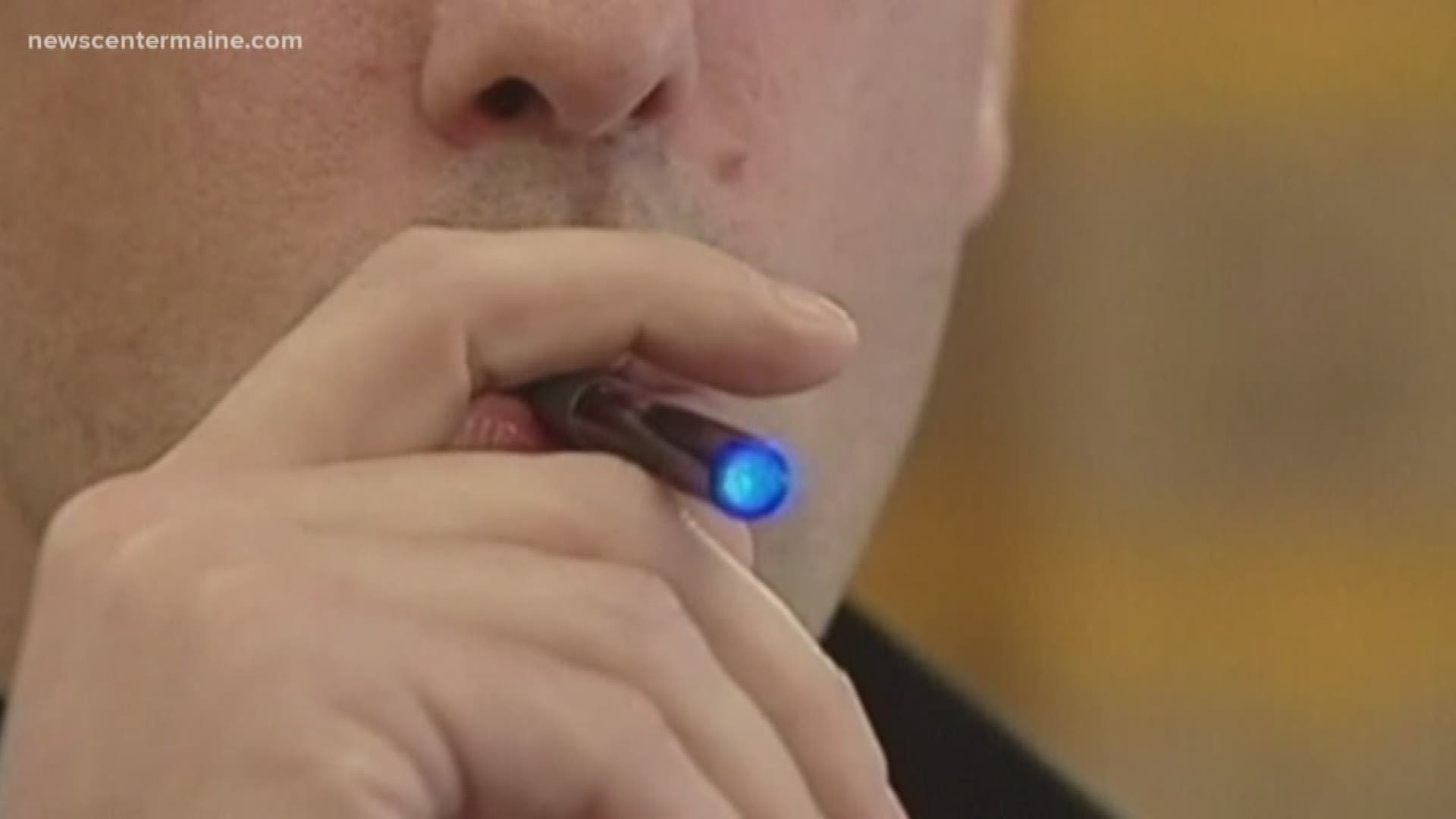PORTLAND (NEWS CENTER Maine) -- E-cigarettes are battery powered devices that heat liquid-based nicotine into an inhalable vapor. According to the Centers for Disease Control and Prevention, more than 2 million teens use them.
"There's actually a significant proportion of children in middle school vaping," said Dr. Colby Wyatt, a pediatric pulmonologist at Maine Medical Center.
"It is very prevalent in all the schools around here," he said. "And it's becoming more and more prevalent."
He says in the last two years, he and his colleagues have started asking patients additional questions about smoking and vaping to include marijuana and e-cigarettes.
"When you ask about it they say 'no.' When you ask follow up questions it comes out that they're doing it," said Dr. Wyatt.
He says from what he has seen, vaping in the last year and a half has been a big part of what's hospitalized kids. That includes teens with cystic fibrosis and he says it's affected their control of the chronic disease.
"Are we going to see an epidemic 15, 20 years from now when these teenagers are addicted to nicotine and on traditional tobacco products?" Dr. Wyatt asked. "We don't know the answer to it and it's somewhat frightening."
The Food and Drug Administration is using more oversight now to protect kids by starting the process to ban menthol in cigarettes and limit sales of flavored e-cigarettes to youths.
For parents, it can be hard to tell if your child is using e-cigarettes because they can be odorless and are easy to hide.
"A lot of the devices look like USB drives," said Dr. Wyatt.
Dr. Wyatt says there are three things to know. One, if you child has a respiratory illness or condition, like asthma, is they starting using their inhaler or medication more that could be an indication they are vaping or smoking.
Two, another indicator?
"Nicotine itself, if you're in withdrawal, can cause some agitation," said Dr. Wyatt. "And so if your kid seems more anxious, it's worth asking."
And three, he says it is vital parents opt to leave the room at the pediatrician's office so kids can speak honestly about their exposure to smoke.
"There's something about communicating with an adult who's not your parent that's very helpful for some teens," said Dr. Wyatt. "Happens in my own household. My kids will have a cough and I'll talk to them about it and they say 'dad, you don't know what you're talking about' and actually it's what I do every day, but they're still my children so actually they get all their medical advice from their physician, not from me."

